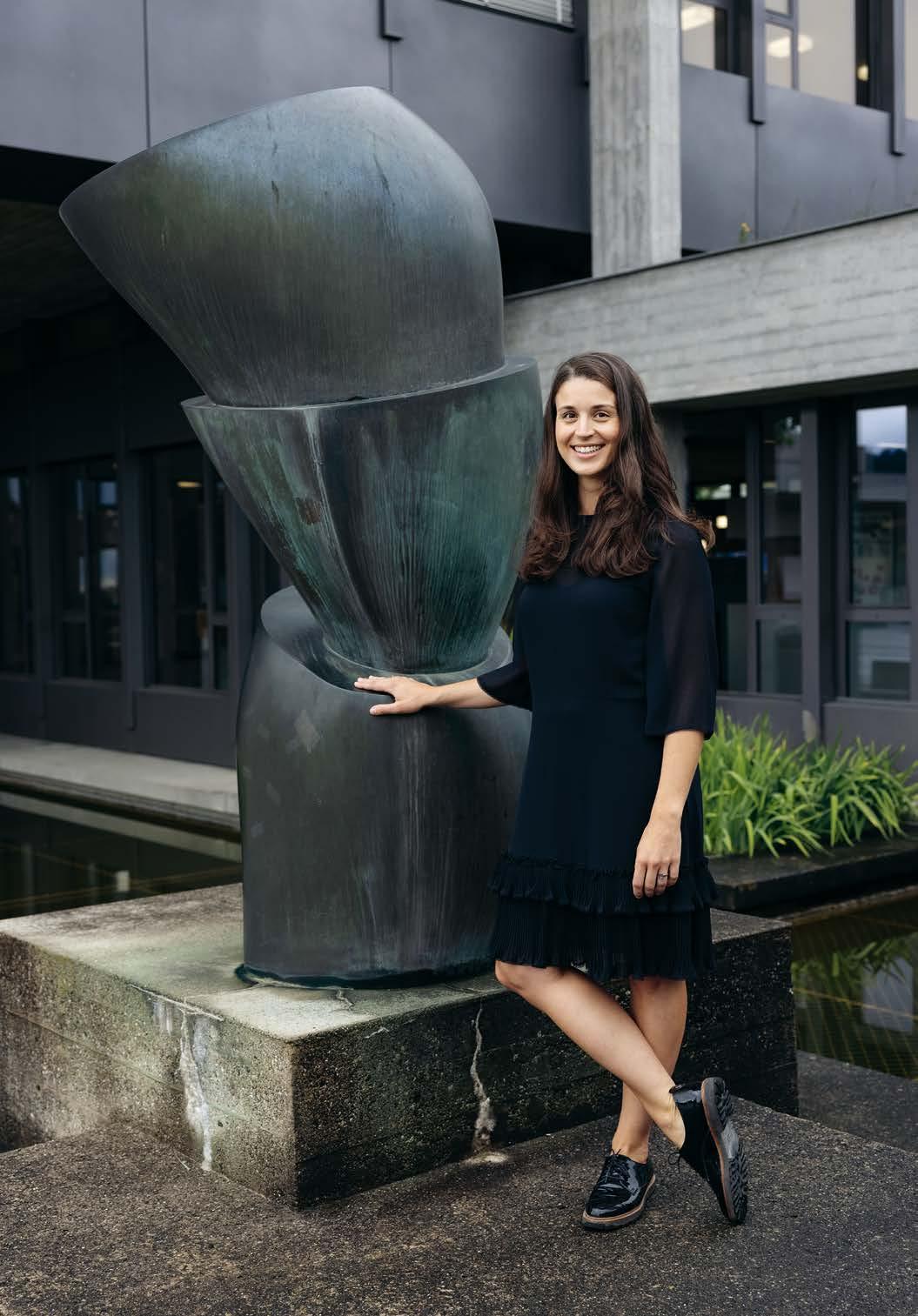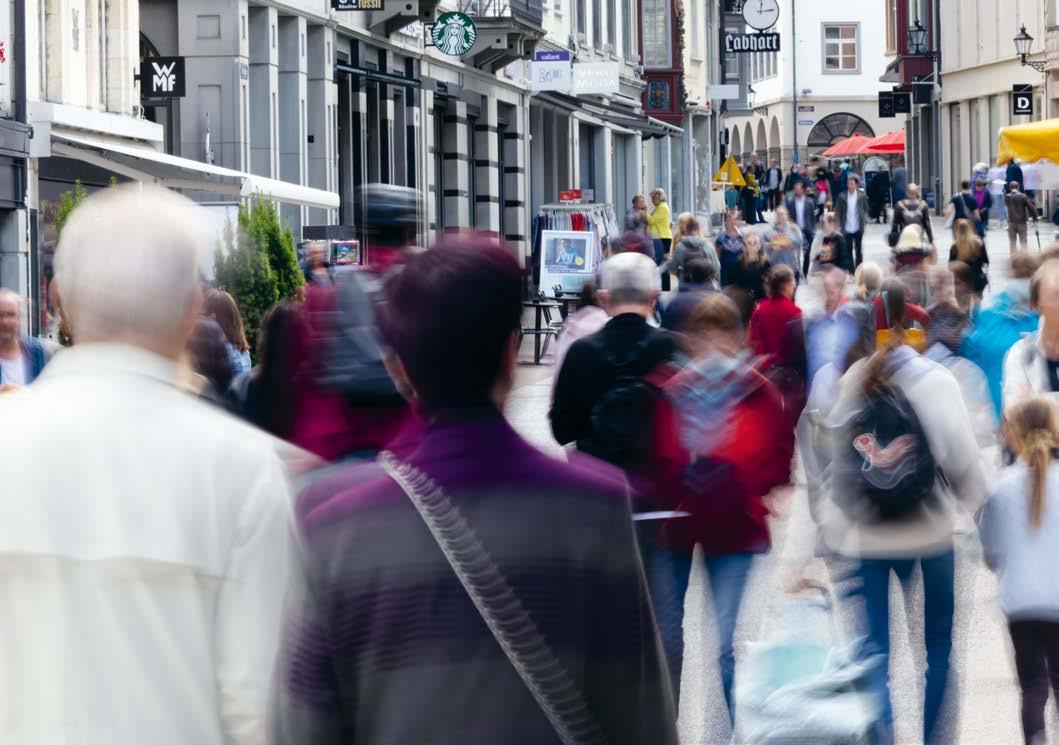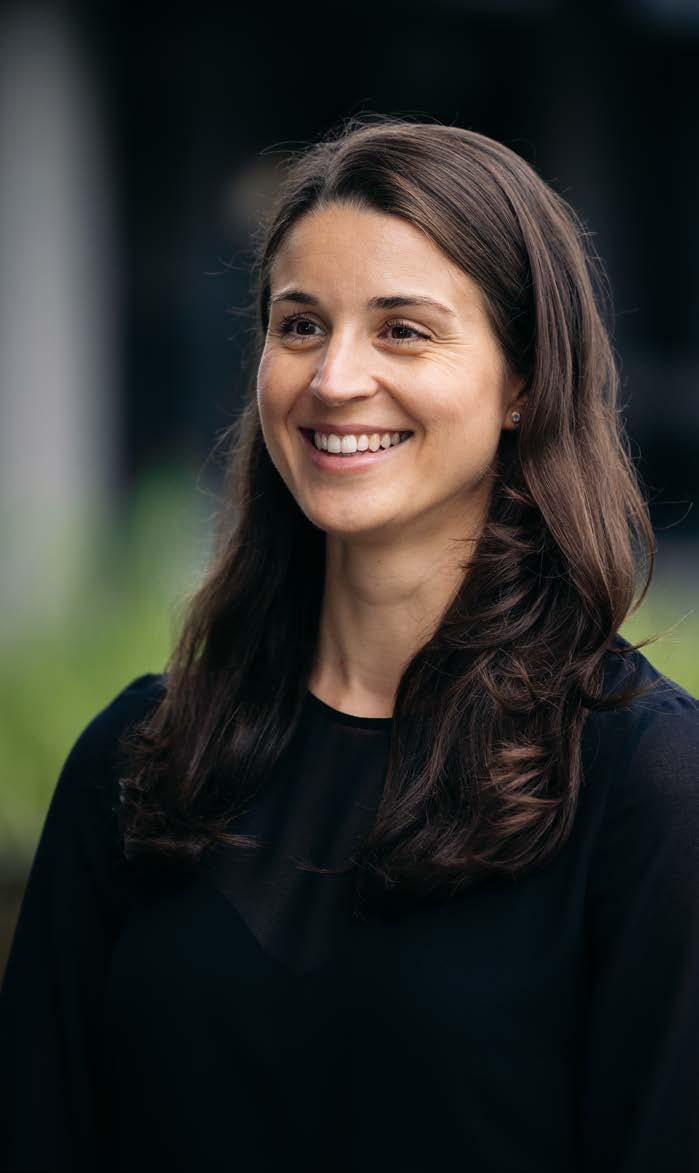
6 minute read
Topstory, School of Management: Smart Cities
Topstory School of Management:
Smart Cities
Smart city: better municipal administration thanks to digital technologies
Bureaucracy meets digital world: not irreconcilable opposites, as innovation researcher Charlotte Lekkas observes in her doctoral thesis. She examined seven European municipal administrations and monitored their digital transformation.
“Technology can improve the lives of people in cities. This starts with interlinked sensors and with digital city administration. If the latter extends its service to citizens with the help of digital platforms, this is a great opportunity,” says Charlotte Lekkas. In the young HSG scientist’s research projects, two worlds meet for the first time: the organisation of conventional municipal administrations and that of the digital platform. Charlotte Lekkas conducts research at the Institute of Technology Management of the University of St.Gallen. She is primarily interested in technology management and new business models. She has been project manager of the research project Smarter Together, which is funded by the EU, for three years.
Developing digital solutions for smart cities
The project concentrates on the implementation of digital solutions in smart cities and the development of smart city business models. “In the project I drew up guidelines together with my colleagues which deal with the experience of cities in the business model development in smart cities. Thus I was able to advise the cities and help them to identify problems early on and develop possible approaches to solutions together with them,” the scientist explains. “In my doctoral thesis entitled The encounter of digital platforms and ecosystems with bureaucratic organizations in smart cities, I was also able to describe empirically, for the first time, how tensions emerge when bureaucratically organised municipal administrations implement digital solutions.”
Bureaucracy more flexible than was thought
“My doctoral thesis deals with the questions as to how decentralised management approaches – such as digital platforms – change, replace or reinforce bureaucratic authority systems,” says Charlotte Lekkas. Her research topic was the result of close cooperation with different European cities. Seven of these cities became part of her data collection and evaluation. The outcome is the process model which shows how officials circumvent emerging organisational tensions in the city administration by means of unbureaucratic governance mechanisms before they newly entrench the results in the existing structures. “I noticed that bureaucratic organisations are more flexible than I’d thought. Digital technologies are integrated into existing structures instead of radically changing them,” says Charlotte Lekkas. She found that bureaucracy adapted itself in order to integrate the platform-based approach into their existing structures. She also found the officials’ paradoxical role remarkable: they are at once preservers and reformers of bureaucracy.
Many roads lead to the smart city
“Vienna came off very well with regard to digital transformation in my survey on account of its open data platform. Lyons is also a pioneer; there is a smart city quarter there which operates CO2-neutral buildings,” says Charlotte Lekkas. The Munich-born researcher has been travelling the length and width of Europe on behalf of the digitalisation of municipal administrations: Munich, Lyons, Vienna, Barcelona, Lisbon and Stavanger. Some of these places are part of her case study which fill the EU Horizon 2020 project Smarter Together and her St.Gallen doctoral thesis with data and life. “Fortunately, I was still able to meet most research partners on site before the

Smart Cities: Digital technologies are integrated into existing structures instead of fundamentally changing them.
Corona pandemic condemned all of us to working from home,” says Charlotte Lekkas.
The scientist loves to be on the road and to discuss our future with people: How can we generate sustainable energy? What business models enable us to attain both the financial and the social and ecological value? What possibilities does digitalisation offer for us to live in an urban community in freedom and justice, and well provided for? “I’ve been thinking about these questions for a long time. When I read the advertisement of the Ph.D. position in St.Gallen, I was pleased because that was precisely the job that would enable me to investigate what interested me: the development of new business models supported by new, digital technologies.” my studies in Munich. Thanks to my time in St.Gallen, I found a new access to nature. I got my sailing licence, for example. And actually bought a functional jacket for hiking. Before my time in St.Gallen, I would never have thought of hanging in the rock face in outdoor clothing,” the researcher says, laughing.
After her studies in Business Administration & Electrical Engineering at the Technical University of Munich, Charlotte Lekkas made a quick foray into the start-up world before she came to St.Gallen in 2017. Besides her work on the EU Horizon 2020 project Smarter Together, she also worked for the software group SAP during the time of her doctoral thesis. There, the researcher’s job was to monitor innovation processes and to support the development of new products
Lake and mountains instead of the Ruhr and industrial flair
Charlotte Lekkas was not disappointed, although as a big city dweller, she initially had to get used to the unhurried pace of St.Gallen. “I began to appreciate the peace and quiet in St.Gallen more quickly than I’d thought. A lake and mountains: this is simply the best contrast to brainwork in the office,” says Charlotte Lekkas. She grew up in Bochum in Germany’s Ruhr area and was used to rushing from one city to another in her spare time in order to enjoy festivals and all sorts of culture together with friends. She had never had so much nature on her doorstep as in the Lake Constance region. “It was only through living in St.Gallen that I became aware of how much I was used to city life because of my childhood in the Ruhr and
in the field of sustainability and of the working world of the future.
Developing digital products
In the summer of 2021, her doctoral thesis was accepted with the highest distinction. After a yoga retreat break in Curzutt in the Ticino to offset the final stage of her doctoral studies, Charlotte Lekkas is now looking forward to new exciting projects. She will maintain her ties with St.Gallen for some time in order to think about her next challenge in peace and quiet. “As a management specialist and technology tifosa, I’m attracted to inventing digital products and helping to develop them. Where I’m going to do that, whether in strategy consultancy, the energy industry or in the digital economy remains to be seen.” In the long term, the researcher would also like to live in New York for an extended period of time. “I find this city exciting because apparently there’s nothing that doesn’t exist there. So many contrasts, offers and encounters usually give rise to something new and inspiring.”
Taking it easy is not really Charlotte Lekkas’s cup of tea. “I’ve got a lot of energy, I prefer to be on the move all the time,” she says, but she will still treat herself to a breather in St.Gallen between her doctoral thesis and the next largescale project in her working life. The motto is clear: “In any case, I always want to remain curious, constantly learn new things, and with my knowledge help people and organisations to attain their goals.”







